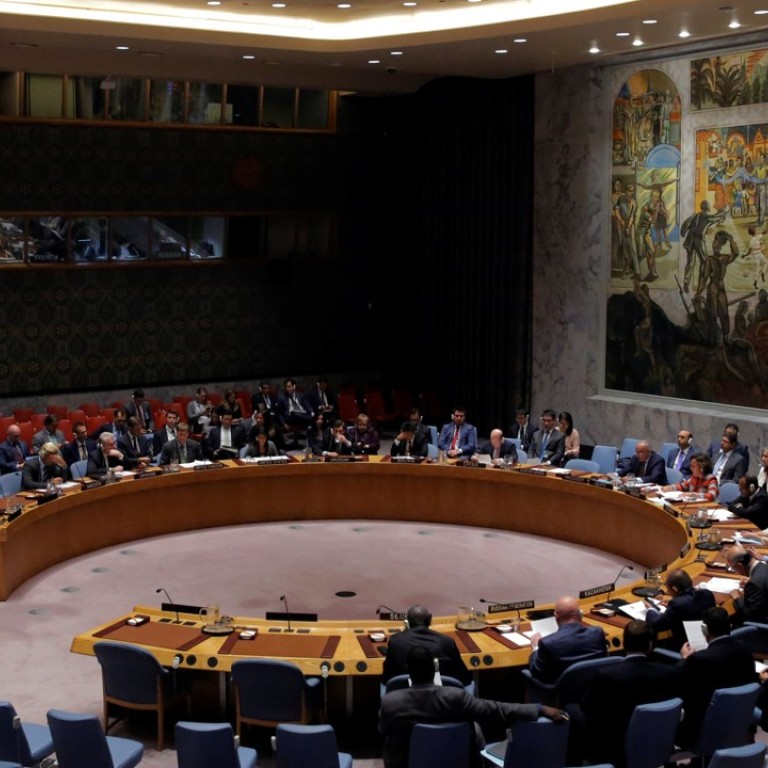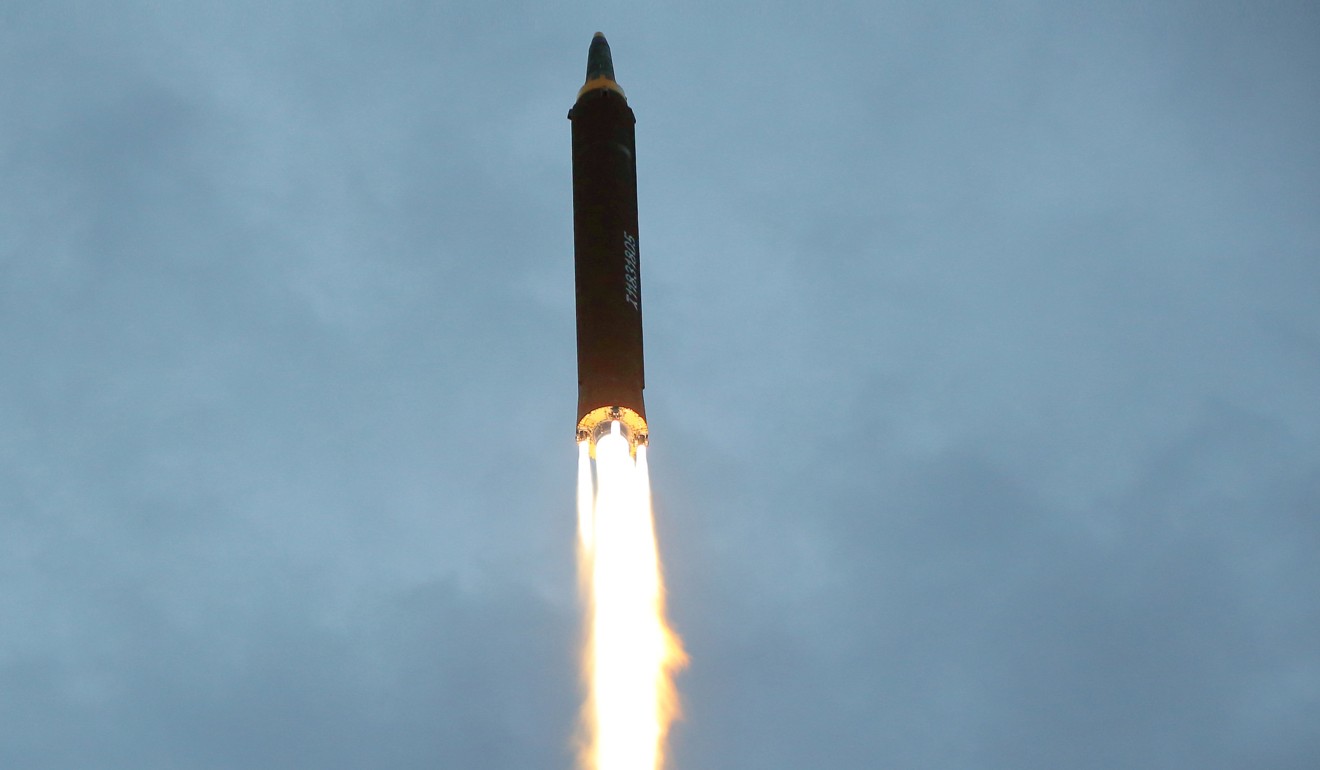
China rules out unilateral sanctions to punish North Korea for latest missile launch
Foreign minister says Beijing will not act on its own but will continue to seek agreement with other UN Security Council members
China has ruled out unilateral economic sanctions on North Korea following its latest missile launch.
Foreign Minister Wang Yi dismissed the idea on Wednesday as the United Nations Security Council, in an emergency meeting, issued a statement condemning North Korea’s launch of a missile over Japan’s airspace.
However, the council stopped short of any new sanctions or other specific measures to rein in Pyongyang.
“Any unilateral sanction ... is not in line with international laws, and is not supported by China,” Wang said in a news briefing.
“A very important part of Security Council resolutions ... is that we should continue to stick to peaceful and diplomatic means to resolve this issue,” he said.
Wang was responding to a question about whether China would stop all natural resource imports from Pyongyang as North Korea continues its military build-up.
He added that China had been working with the four other permanent Security Council members – the US, Britain, France and Russia – to start discussions on the issue.
Speaking on the sidelines of a press briefing ahead of next week’s emerging market economies summit in Xiamen, he added that there would be a “necessary reaction” based on an agreed resolution.

The UN Security Council, meanwhile, said it condemned North Korea for its actions and demanded it “abandon all nuclear weapons and existing nuclear programmes”.
Pyongyang said the launch of the missile was to counter US and South Korean military drills. Its leader Kim Jong-un said the launch was a “meaningful prelude” to containing Guam, the KCNA news agency reported on Wednesday.
South Korea will host a vice-ministerial defence forum next week, largely on North Korea, cybersecurity and antiterrorism efforts. China is expected to send a civilian delegation of security experts, Yonhap news agency reported.
China is facing heightened pressure to rein in North Korea following the latest missile launch. Speaking during a visit to the Japanese city of Osaka, British Prime Minister Theresa May said Beijing had a key role to play.
Chinese Foreign Ministry spokeswoman Hua Chunying said, however, that some “relevant sides” were being selective in their response to the UN resolutions, by pushing hard for sanctions but neglecting to support a return to talks.
This was not the attitude “responsible countries” should have while the “smell of gunpowder” remained strong over the Korean peninsula, she said.
Diplomatic observers said the recent firing of missiles by North Korea had put Beijing in a difficult position. China, which accounts for the vast majority of its neighbour’s foreign trade, would bear the financial brunt of any new UN sanctions against Pyongyang.
In 2015, China imported US$2.96 billion worth of products from North Korea, or 85 per cent of its total exports, according to figures from the Observatory of Economic Complexity. India was the second biggest importer of goods from the restive state with US$108 million.
China has already banned imports of coal, iron, iron ore and seafood from North Korea, which is estimated to cost Pyongyang more than US$1 billion.
Wang Sheng, an international relations expert at Jilin University in eastern China, said: “China believes sanctions and peace talks should go hand in hand. Yet, North Korea’s strong response to the US-South Korea military exercise is not a positive sign for peace talks, and because of that China will have to go along with any new UN sanctions.”
Cui Zhiying, an expert on Korean affairs at Tongji University in Shanghai, said China was likely to support the UN sanctions while also pushing for peace talks.
“The latest missile fired by North Korea showed that they are not backing down in any way,” he said.
Additional reporting by Reuters


